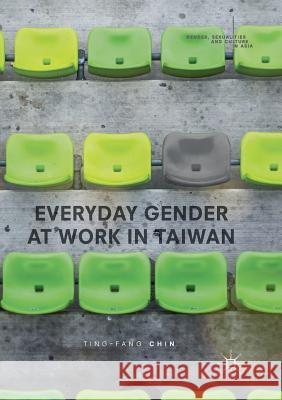Everyday Gender at Work in Taiwan » książka
topmenu
Everyday Gender at Work in Taiwan
ISBN-13: 9789811356230 / Angielski / Miękka / 2018 / 222 str.
Kategorie:
Kategorie BISAC:
Wydawca:
Palgrave MacMillan
Seria wydawnicza:
Język:
Angielski
ISBN-13:
9789811356230
Rok wydania:
2018
Wydanie:
Softcover Repri
Ilość stron:
222
Waga:
0.32 kg
Wymiary:
21.01 x 14.81 x 1.42
Oprawa:
Miękka
Wolumenów:
01
Dodatkowe informacje:
Wydanie ilustrowane











